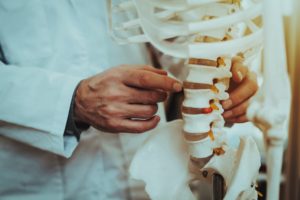
They are wrong.
Of course, calcium is required for strong healthy bones. Your bones are largely made from the mineral and when your body needs calcium for many other processes, it is drawn from the bone. Replenishing it daily is essential, but not enough.
Calcium needs vitamin D if it is going to be properly absorbed. So, if you’re eating plenty of calcium from dairy and nuts, for example, or even taking a supplement, it may all be for naught. Calcium without enough vitamin D does not have much value for bone health.
On the other side of the equation, packing down vitamin D might not have many benefits on its own either, especially if you’re talking about supplements. A new review has found that taking vitamin D alone, without calcium, has no influence on bone health and does not protect against fractures.
For bone health, you need both. Natural sources of calcium are best—and have the least amount of risk—whereas vitamin D supplementation in one form or another might be required. The fat-soluble nutrient is not available in many foods (you can get it in eggs, salmon, and a few others in small amounts; fortified foods are good) and the best source is sunlight.
Even still, healthy bones need more than calcium and vitamin D. The idea that these two nutrients alone can keep your bones dense and strong is sorely mistaken.
Strong bones also require potassium, magnesium, protein, and phosphorus. They also need muscle (protein) for support and strength. Put simply, healthy strong bones need a healthy diet and lifestyle.
Nutrients work together to promote strong bones, just like they do for a strong immune system, heart, and brain. If you want to strengthen your bones to prevent the chance of a fracture, eat a balanced diet, enough protein, and get plenty of exercise.